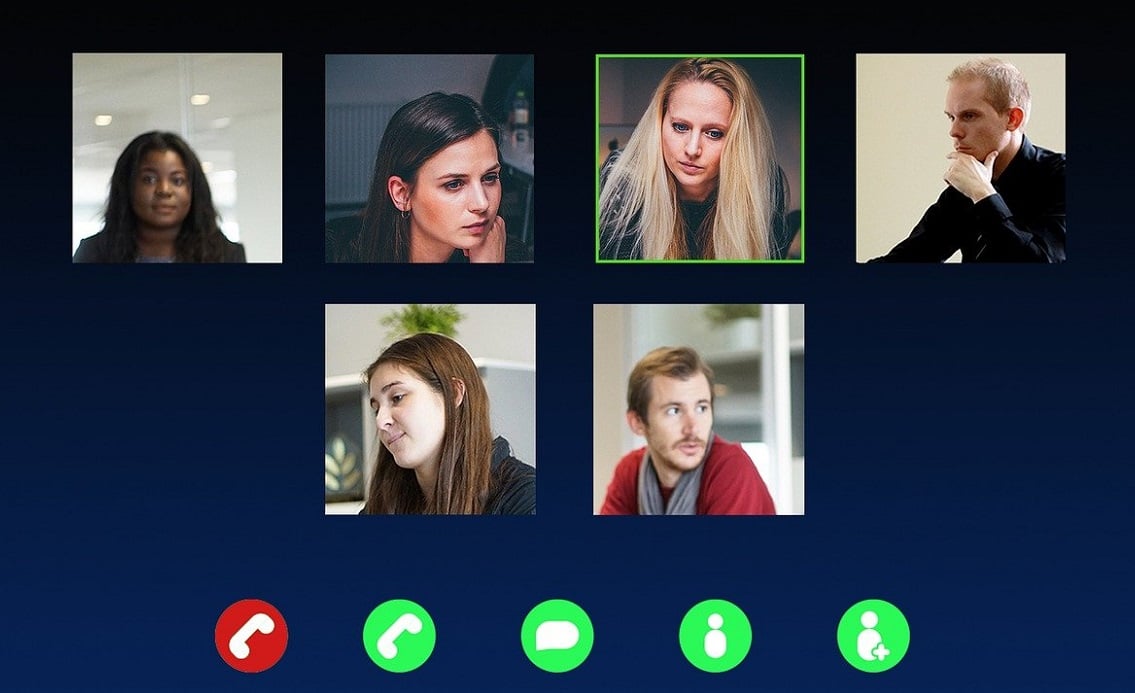
Lockdown has made digital programmes more attractive - and more necessary
Photo: Jagrit Parajuli
Sector looks to digital for post-pandemic bounce
Cultural organisations and funders are investing in digital to keep artistic activity alive – whether social distancing rules persist or not.
The lockdown experience has pushed museums, galleries and theatres to develop their digital presence for the future, according to new research.
A survey of 500 cultural organisations has revealed that four out of five now see digital attractions as more important.
Adapting to their new reality was challenging for many organisations which lacked the necessary digital infrastructure – and monetising online content in a digitally saturated landscape is perhaps more challenging still.
READ MORE:
Funders appear to be responding to the sector’s needs, with many Culture Recovery Fund awards given for specific digital programmes.
The National Lottery Heritage Fund on Thursday opened applications for a share of £1m to “raise digital skills and confidence across the UK heritage sector”. Grants of up to £120,000 will help organisations build their resilience, share expertise, and make use of new digital technology and opportunities.
The Fund’s Head of Digital Policy, Josie Fraser, said the Digital Skills for Heritage programme “has been especially important during the coronavirus pandemic, where these resources have helped organisations develop their use of effective digital technology – many for the first time”.
Growth patterns
The survey, commissioned by Ecclesiastical Insurance and conducted by research company OnePoll, found that lockdown led to a huge increase in the number of digital attractions offered.
Virtual events saw the most significant take-up. 71% of museum respondents said they offered virtual events as a result of Covid-19, compared with 42% who had done so pre-pandemic.
The use of interactive mobile apps – offered by just 18% of museums before the crisis – almost doubled to about a third of museums.
Almost two-thirds (65%) offered video content compared with just 43% beforehand, though livestreaming and social media Q&As saw only small increases.
The growth pattern was similar at galleries and theatres, though their overall take-up of digital in response to the pandemic was lower. Both increased their output of video content and virtual events significantly, and galleries presented more virtual tours.
Skills gap
Limited digital skills in the cultural workforce has been a major challenge for some wanting to adapt to digital production.
Almost two-thirds of museums and one-third of theatres said they had to improve their digital skills to adapt during lockdown. Online training was key, and more than four out of five described the process as ‘quite' or 'very' challenging.
Resolving the skills gap will, however, be critical for cultural organisations. As a result of Covid, more than 90% of museums, galleries and theatres say digital attractions will be important to them in the future.
This is especially true of museums, with half of these institutions saying digital attractions are ‘extremely important’.
Needs must
Despite the digital skills gap, many are pushing ahead with what, in some regions of the UK, is their only option for engaging audiences right now.
In Manchester, where a tier 3 lockdown was announced this week, an outdoor art trail with its own app and interactive map will raise money for local charity We Love MCR Trust and income for the artists involved. 50 Windows of Creativity is an opportunity to “show support for the arts community,” City Councillor Luthfur Rahman said.
Manchester Art Gallery and Read Manchester have launched a timely new campaign to build children’s language skills through digital storytelling, and organisations in Yorkshire are using their cultural recovery awards to pursue online programmes and invest in much-needed technology infrastructure.
In Wales, Gŵyl yr Enfys (The Rainbow Festival) is celebrating the creativity of the people of Ceredigion during lockdown through virtual cooking classes, mindfulness sessions, films, talks and musical events.
National Youth Arts Wales will expand its digital programme next year following a series of Zoom-based ‘mini residencies’ over the summer. The organisation says new online masterclasses and workshops will either allow for a fully digital residency programme or complement in-person learning if social distancing requirements, made stricter this week, are lifted.
Investment and income
Investment in technology was widely thought to be key to delivering a digital future for the cultural organisations surveyed, though strategies for monetising digital content vary.
Museums are likely to rely most on small donations and 11% say they will not charge people. Relatively few (35%) expect to charge one-off fees for content.
But the picture is different among theatres and galleries, both of which see membership subscriptions as a way to charge for digital content in the future.
For example, The National Gallery, in addition to its free online events, offers a range of paid for online events including workshops and talks with artists. Supporters can also donate via the gallery’s website.
More theatres and galleries would charge one-off fees and fewer expect to rely on donations. Only 5% said they would not charge at all.
Join the Discussion
You must be logged in to post a comment.